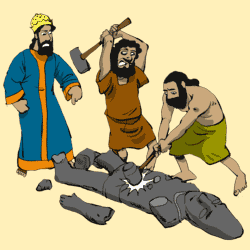 The language of culture echoes in the way we dress, the jobs we take, and even how we interact with our friends; we all speak this language as we mimic the world of celebrity, buy into the promise of consumption, and place our trust in the hope of progress, according to Tim Willard and Jason Locy in their book Veneer: Living Deeply in a Surface Society. We use a veneer to cover over ourselves, hoping others will perceive us as having greater wealth, as being more beautiful and perfect than we feel inside.
The language of culture echoes in the way we dress, the jobs we take, and even how we interact with our friends; we all speak this language as we mimic the world of celebrity, buy into the promise of consumption, and place our trust in the hope of progress, according to Tim Willard and Jason Locy in their book Veneer: Living Deeply in a Surface Society. We use a veneer to cover over ourselves, hoping others will perceive us as having greater wealth, as being more beautiful and perfect than we feel inside.
The book goes on to challenge many of the things that Christians living in wealthy countries do and think. We embrace uncritically self-promotional tools like Twitter and Facebook, justifying them by arguing that a bit of celebrity is necessary to obtain true influence. Influence, approval and achievement become our idols. We fall headlong into the trap of consumption, believing that personal meaning comes from the things that we buy. We have embraced technology to the point that even in the presence of our friends we would rather hide in our invisible worlds.
In churches, we try to create environments where attendees can “experience God”. But, according to the authors, “When we make worship a sensory experience, we devalue its authenticity. The primary focus, which should be on God, turns to those manipulating the experience.” I am not sure that this is a fair critique; undoubtedly some worship leaders and pastors make themselves the focus rather than God, but merely creating a worshipful environment does not constitute “manipulating the experience” if the focus remains on God. True worship is always a sensory experience.
By the end of the book I found myself wondering whether it really is possible to live a veneer-less life. Perhaps the best we can hope is to do our best to recognise and deal with the veneers we are constantly constructing. The authors describe a “deeper” man, Dean, who has a rugged past and runs a sawmill and smokes cigars, but I could not help wondering whether he was just another veneer, the clichéd rugged artisan. The book is well worth reading, even if you do not end up agreeing with all that the authors say.